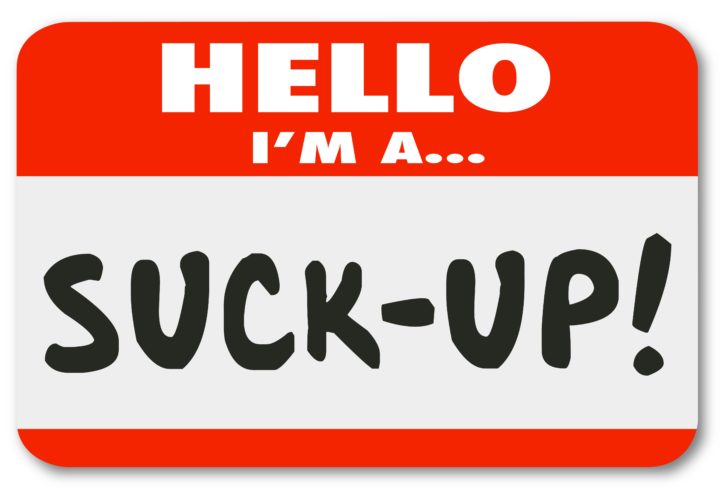Flattery Will Get You Everywhere
I was initially appalled when I watched the recent cringeworthy video of Donald Trump’s cabinet meeting, where hugely powerful and successful men and women competed to see who could offer the highest (or lowest, depending on your point of view) form of flattery for their boss.
That was my personal reaction, but my professional reaction was totally different. As distasteful as it may have appeared, it was actually a brilliant display of persuasive communication skill. Think about it this way: if your goal is to advance the interests of the department you head, you need the support of the President. If you’re the only one in the room not competing to outdo the others in compliments, what do you suppose are your chances? (And don’t forget that each of these people is quite accustomed to being on the receiving end of flattery from their subordinates—they know it works.)
Trump’s apparent craving for flattery is probably extreme, but research has shown that flattery works with just about everyone. Stanford professor Jeffery Pfeffer says that “The surest way to keep your position and to build a power base is to help those with more power enhance their positive feelings about themselves.”[1] Jennifer Chatman of UC Berkeley says, “People who bring positive information, that stroke the boss, that make the boss feel good about the decisions he or she has made, that build up the boss’ confidence, those people are going to do better.”[2]
The reason it works is that a person hearing something nice about themselves can either a) believe that the other person is only saying it to curry favor, or b) believe it’s true. The problem with accepting A is that it requires you to think less well not only of the person saying it, but of yourself. Through the magic of motivated reasoning you are much more likely to choose B. And besides, as this recent article indicates, the really powerful may actually be incapable of reading your true intentions (not that you would tell them)!
It also works because it makes the recipient like you better. Robert Cialdini cites a study in which men received comments about themselves (some only praise, some negative comments, and others a mixture) from a person who needed a favor. Those who received only praise reported liking the commenter better, even when they knew they needed a favor and the praise was untrue.[3]
That last statement shows that there’s not much risk of a backlash if your flattery is over the top. In her research, Chatman looked for the point at which flattery becomes less effective, and was not able to find it. Flattery is that powerful, which is why Machiavelli explicitly warned leaders against its power over five hundred years ago.
Flattery isn’t just for managing upward within your organization. It can be useful in sales calls or presentations, especially to get the audience more favorably disposed to your message right at the beginning. Keep in mind that a sales pitch can be ego-threatening to the buyer, because in effect you’re telling them that they’re doing something wrong and they need to change. Soften the blow by stroking their ego at the beginning, to get them more favorably disposed toward your idea and to you personally.
So, go ahead and be a suck-up. If you read this article, you are clearly too smart to let flattery work on you, but you are also too smart to pass up the use of this extremely powerful tool, even if you find it distasteful. But just in case, my next post will address how to do it without being a complete suck-up.
[1] Jeffrey Pfeffer, Power: Why Some People Have It and Others Don’t, p. 31.
[2] Workers’ “Sucking Up” Bad for Business: Experts
[3] Robert, Cialdini, Influence: The Psychology of Persuasion, p. 176.



